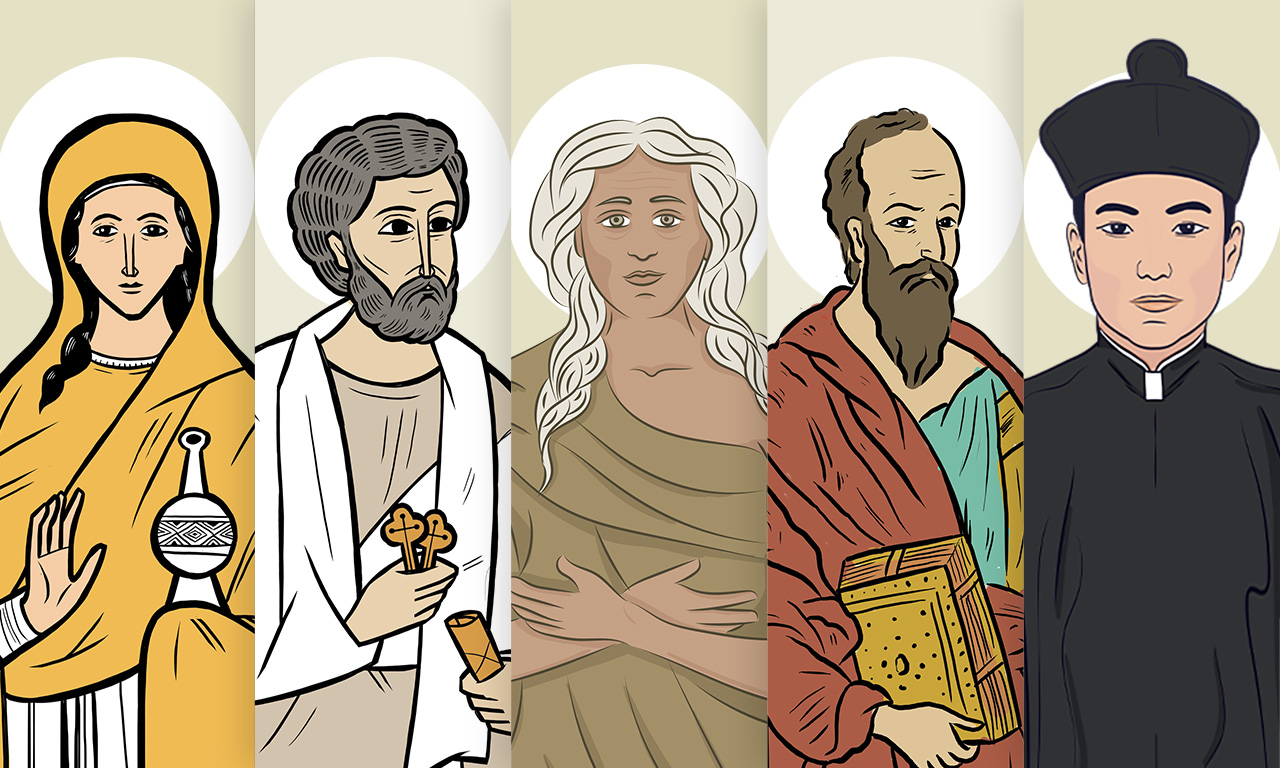Découvre des amis et des compagnons sur ton chemin vers Dieu
En ligne avec les Saints propose une rencontre virtuelle avec plus de 100 saints du monde entier. Femmes et hommes, charpentiers et érudits, mères et papes, princes et pauvres : leurs histoires de vie inspirantes sont liées à des questions de la vie réelle.

Laisse les saints t’inspirer par leur exemple

Une rencontre virtuelle avec plus de 100 saints

Une recherche interactive de réponses
Découvre les histoires captivantes de la vie des saints pour trouver des réponses aux questions que tu te poses
Discerne ton parcours personnel vers la sainteté, tout comme chaque saint a trouvé sa vocation d’une manière différente
Découvre des faits intéressants, des citations, des prières et des articles concernant des saints du monde entier
L’auteur

Le père Michel Remery est un prêtre catholique néerlandais, fondateur d’En ligne avec les Saints et de Tweeter avec DIEU. Il a étudié l’architecture (1992-1996), la philosophie et la théologie (1999-2006). Il est devenu vicaire de paroisse (2006-2012), et a travaillé en particulier avec les jeunes. Il a été nommé vice-secrétaire général du Conseil des conférences épiscopales d’Europe - CCEE (2012-2017). Depuis 2018, il poursuit sa mission sacerdotale au Luxembourg en tant qu’aumônier national de la jeunesse et directeur des projets internationaux Tweeter avec DIEU et En ligne avec les Saints.
Fais un don

Soutiens financièrement notre mission d’explication et d’annonce de la foi catholique dans le monde entier ! Nous comptons entièrement sur des sympathisants comme toi pour mettre en œuvre nos projets. Chaque don est utilisé à 100 % pour financer notre mission.
Deviens volontaire
Fais la différence ! Rejoins-nous en tant que missionnaire en ligne ! Intègre notre joyeuse équipe internationale de volontaires.
Nous avons besoin d’aide pour la traduction et la relecture de textes dans différentes langues, la modération en ligne, la rédaction et la révision de textes, les prises de vue et le montage de vidéos, le support informatique, les réseaux sociaux...



